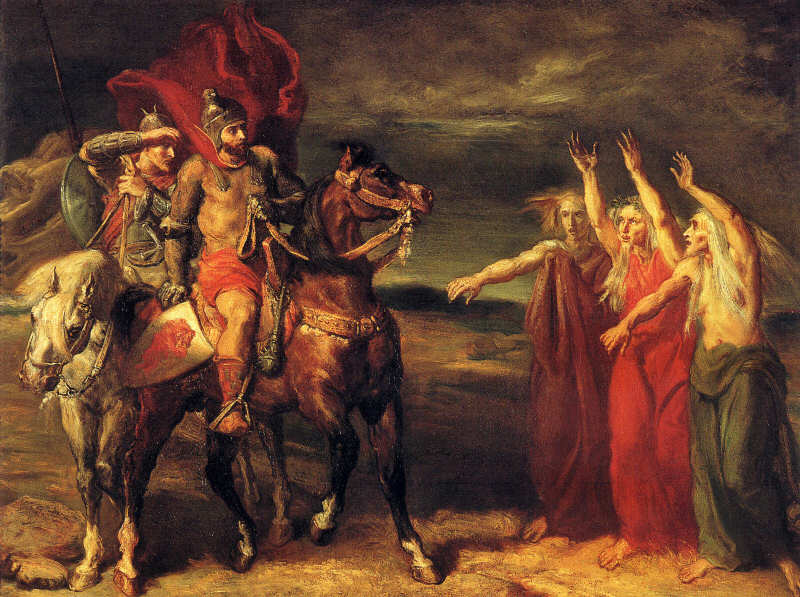Category: Author William Shakespeare
-

Tragedy as an Exploration of Ambition and Power: The Moral Conflict in Macbeth
Tragedy is a genre that allows us to explore the depths of human nature and understand how personal weaknesses and moral dilemmas shape a person’s fate. Studying tragedies is important not only for literature but also for understanding social, psychological, and cultural processes. A work like Macbeth Macbeth vividly demonstrates how ambition and the pursuit…
-
William Shakespeare Quotes – Page 57 | Just Great DataBase
She is rich in beauty. William Shakespeare Romeo and Juliet 5 Or I am mad, or else this is a dream. William Shakespeare Twelfth Night 5 Enough no more; Tis not so sweet now as it was before. William Shakespeare Romeo and Juliet 5 Fare thee well/ A fiend like thee might bear my soul…
-
William Shakespeare Quotes – Page 37 | Just Great DataBase
Possiamo chiudere con il passato, ma il passato non chiude con noi. William Shakespeare The Merchant of Venice 14 Thus have I, Wall, my part discharged so;And, being done, thus Wall away doth go. William Shakespeare A Midsummer Night’s Dream 14 Here come the lovers, full of joy and mirth.— Joy, gentle friends! joy and…
-
William Shakespeare Quotes – Page 33 | Just Great DataBase
Four days will quickly steep themselves in nights;Four nights will quickly dream away the time. William Shakespeare A Midsummer Night’s Dream 18 What hands are here? ha! they pluck out mine eyes! Will all great Neptune’s ocean wash this blood clean from my hand? No; this my hand will rather the multitudinous seas incarnadine, making…
-
William Shakespeare Quotes – Page 4 | Just Great DataBase
In time we hate that which we often fear. William Shakespeare Antony and Cleopatra 726 I had rather hear my dog bark at a crow, than a man swear he loves me. William Shakespeare Much Ado About Nothing 720 And yet,to say the truth, reason and love keep little company together nowadays. William Shakespeare A…
-
William Shakespeare Quotes – Page 12 | Just Great DataBase
Love sought is good, but giv’n unsought is better. William Shakespeare Twelfth Night 118 I love you with so much of my heart that none is left to protest. William Shakespeare Much Ado About Nothing 118 My hands are of your color, but I shame to wear a heart so white. William Shakespeare Macbeth 117…
-
William Shakespeare Quotes – Page 49 | Just Great DataBase
Beshrew me but I love her heartily, For she is wise, if I can judge of her, And fair she is, if that mine eyes be true, And true she is, as she hath proved herself: And therefore like herself, wise, fair, and true, Shall she be placed in my constant soul. William Shakespeare The…
-
William Shakespeare Quotes – Page 15 | Just Great DataBase
Tis in ourselves that we are thus or thus. Our bodies are our gardens to the which our wills are gardeners. William Shakespeare Othello 83 Your tale, sir, would cure deafness. William Shakespeare The Tempest 83 When I saw you I fell in love and you smiled because you knew. William Shakespeare Romeo and Juliet…
-
William Shakespeare Quotes – Page 75 | Just Great DataBase
And in thy best consideration checkThis hideous rashness. Answer my life my judgementThy youngest daughter does not love thee least,Nor are those empty-hearted whose low soundsReverb no hollowness. William Shakespeare King Lear 2 أكون أو لا أكون .. تلك هى المسألة. William Shakespeare Hamlet 2 That you do love me, I am nothing jealous. William…
-
William Shakespeare Quotes – Page 72 | Just Great DataBase
For I am born to tame you, Kate,And bring you from a wild Kate to a KateComfortable as other household Kates. William Shakespeare The Taming of the Shrew 2 KING RICHARD. I have learn’d that fearful commentingIs leaden servitor to dull delay;Delay leads impotent and snail-pac’d beggary.Then fiery expedition be my wing,Jove’s Mercury, and herald…
